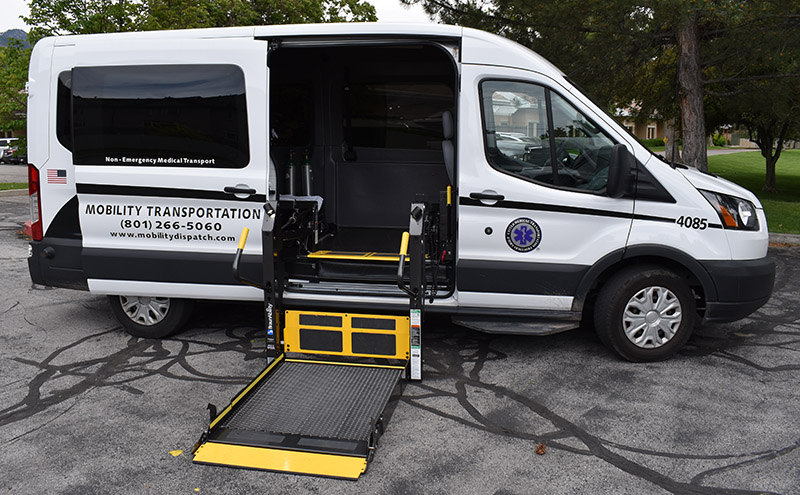Safeguard Your Wellness Trip: Medical Transportation Services Near Me
Accessible and Affordable Medical Transportation Options for Seamless Health And Wellness Support
In the world of healthcare, the availability and cost of clinical transport are critical in ensuring people can access the treatment they require when they require it. The ability to seamlessly navigate transport choices can dramatically influence a person's ability to obtain timely clinical focus, follow-up care, and general wellness. From non-emergency clinical transportation solutions to ingenious solutions like telehealth, the landscape of medical transportation is developing to fulfill the diverse requirements of patients. Thinking about the importance of this element in medical care delivery, checking out the array of choices available ends up being important for addressing spaces in accessibility and cost.
Non-Emergency Medical Transportation Services

These solutions are staffed by qualified professionals that prioritize person comfort and safety and security throughout transit. Drivers are equipped to handle individuals with varying clinical demands and make certain that all journeys are trouble-free and smooth - Medical Transportation Services Near Me. Additionally, non-emergency medical transportation services commonly utilize specific automobiles that are wheelchair-accessible, making them suitable for a broad array of individuals with different movement needs
Volunteer Driver Programs
Volunteer motorist programs are crucial in providing transportation support for people in requirement of non-urgent healthcare. These programs depend on the kindness of volunteers that contribute their time and automobiles to assist transport people to and from clinical consultations. By utilizing volunteer motorists, companies can offer a cost-effective option for people that may not have access to dependable transportation.
Among the essential benefits of volunteer motorist programs is the individualized treatment and focus that people obtain. Unlike traditional transportation solutions, volunteer drivers usually establish a rapport with the people they help, creating a thoughtful and helpful atmosphere throughout what can be a difficult time. In addition, volunteer chauffeur programs can aid connect the void for individuals staying in underserved or country areas where mass transit alternatives may be restricted.
Mass Transit Options

Among the essential advantages of mass transit is its extensive availability in metropolitan and rural locations alike. This extensive network permits patients from varied histories to travel to clinical appointments with family member convenience. Furthermore, public transport systems are commonly furnished to accommodate individuals with handicaps, giving obtainable traveling alternatives for those with movement challenges.

Ride-Sharing and Transportation Network Companies
The development of contemporary transport choices for clinical functions prolongs past standard public systems like go to these guys trains and buses to include the ingenious world of ride-sharing and transport network business. Ride-sharing solutions such as Uber and Lyft have actually revolutionized the method people take a trip to clinical visits, supplying convenience and flexibility to individuals that might not have access to their vehicles or conventional mass transit. These systems allow customers to request an adventure with the touch of a button on their smart devices, offering door-to-door service that can be particularly helpful for individuals with movement challenges or those calling for aid.
Transport network companies (TNCs) have actually additionally played a substantial duty in connecting the space in medical transportation services. Firms like Veyo and RoundTrip concentrate on non-emergency clinical transportation, catering to patients that require a greater degree useful throughout their journeys to clinical centers. By partnering with doctor and insurance firms, TNCs make certain that people can access prompt and reputable transport options, eventually adding to boosted health and wellness outcomes and patient complete satisfaction.
Telehealth and Virtual Appointments
Enhancing medical care availability and comfort, telehealth and virtual consultations have actually arised as essential elements in modern clinical techniques, transforming the means individuals interact with doctor. Telehealth leverages innovation to promote remote communication in between clients and medical care experts, providing a vast selection of services such as online appointments, remote monitoring, and electronic prescriptions. Online assessments make it possible for patients to seek medical recommendations, medical diagnosis, and therapy from the convenience of their homes, eliminating the need for physical check outs to health care centers. This strategy not just conserves time and reduces transportation costs for clients however likewise improves the general effectiveness of health care distribution.
Moreover, telehealth plays an important duty in expanding medical solutions to underserved communities, rural locations, and people with limited wheelchair. By breaking down geographical barriers and enhancing health Click This Link care outreach, telehealth promotes early intervention, continuity of treatment, and patient engagement. As technology remains to advance, telehealth is positioned to play a significantly considerable function fit the future of healthcare distribution, promoting improved health end results and individual contentment.
Final Thought

From non-emergency clinical transportation solutions to ingenious solutions like telehealth, the landscape of clinical transportation is advancing to satisfy the varied requirements of patients.Non-Emergency Medical Transportation Services assist in the prompt and risk-free transport of individuals calling for non-urgent medical treatment to and from healthcare facilities.The advancement of contemporary transport choices for medical objectives extends past traditional public systems like trains and buses to encompass the ingenious world of ride-sharing and transportation network business.Transport network companies (TNCs) have additionally played a substantial role in connecting the void in medical transport solutions. Non-Emergency Medical Transportation Providers, Volunteer Driver Programs, Public Transportation Options, Ride-Sharing and Transport Network Companies, and Telehealth and Virtual Consultations all play an essential function in addressing transportation obstacles to medical care access.